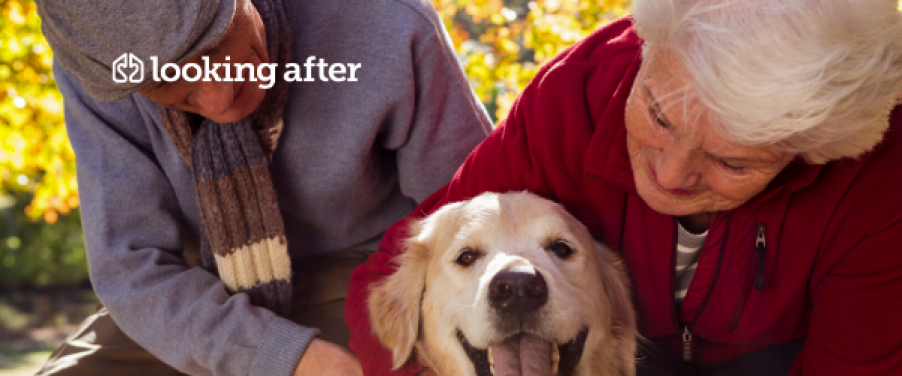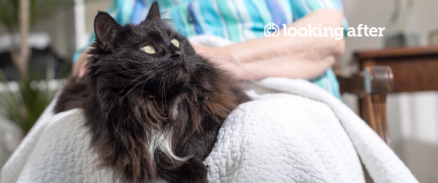Pets and dementia
Pets can be a great help to people with dementia. They can offer company, companionship and help to deter feelings of isolation for the person with dementia. They also give a focus and routine to the person with the requirement to take the pet for a walk, or to feed it. One of the best benefits, is the exercise that it can facilitate on the part of the dementia sufferer.
If you are wondering whether you should get someone with dementia (or has just been diagnosed with dementia) a pet, then this article covers the different types of pets and their benefits for dementia patients. We also cover pet therapy in more detail in our article here.
Dogs
A dog is the best idea if you want to make sure that the person involved stays active and needs exercise to help and improve quality of life. Going for a walk with a dog helps with other challenges such as managing negative emotions such as anger on the part of the sufferer. Walks with a dog mean fresh air, exercise and sunshine, a great combination to help people with dementia.
Dogs can also be a great benefit if the person with dementia does not speak anymore, they can still communicate and the dog knows it is loved, and will come back again for scratches, strokes and pats.
A recent development, a very welcome one has been the introduction of the ‘dementia dog, which is a trained companion for people with dementia. It can perform a long list of helpful tasks, even remind a person to take their tablets.
One of the key benefits is the general good feeling people have about dogs, and seeing the dementia dogs in action can often invite interaction from other people who want to pat the dog and the tasks that the dog performs is a great topic of conversation between the person with dementia and the person who has come over to pat the dog and learn more about them.
Another great asset that the dementia dog brings is that it can be trained to know where ‘home’ is and when and when the order for home is given, the dog will take the owner home. This is of great benefit for a person with dementia who has struggled with ‘wandering’ an issue we have discussed in other blogs. A solution to the wandering and getting lost challenge can sometimes be reason enough to get a dementia dog or a normal dog breed that can be trained easily and effectively.
The focus and routine that a dementia dog gives also helps general well being of the person with dementia.If the person has been hospitalised, then taking a dog in to visit, often in the hospital gardens or surrounds can be of great help to the patient.
Cat
If you feel a dog may be too much to handle, then a cat might be a good solution. They are tactile and need attention. Again, petting a cat or dog has benefits, helps keep the person with dementia calmer, reduces anger and helps overall well being. It’s a companion, as a dog is, and again, gives focus and purpose with feeding and letting it out into the garden (if there is no cat flap), or emptying the litter tray. The last activity may need to be supervised at a later stage.
Smaller animals
Other households that are suitable are rabbits, guinea pigs, small animals that again can offer companionship and friendship, looking after the pet giving purpose and routine.
Fish can be popular and very easy to manage. They don’t require that much management, so not great on the focus and routine front, apart from the process of feeding, but they can be beneficial from a sensory and light perspective. Buy colourful fish, a selection of sizes and make sure the tank is managed and cleaned properly. As with the cat litter, it is up to the carer to decide if this is a task that the person with dementia can carry out. Ideally, yes, or they may need varying levels of assistance.
Summary
Pets are great for people with dementia. A Dementia pet’s presence can help with anxiety, irritability, agitation, depression, loneliness. They’re great for exercise and keeping the person involved with life activities, sustaining focus and giving purpose. These are all important activities to help reduce the development of the later stages of dementia. As we have covered in several articles, there are many benefits using sensory and alternative therapies in dementia care.
As a doctor once said - “If pet ownership was a medication, it would be patented tomorrow.
Advice and articles





